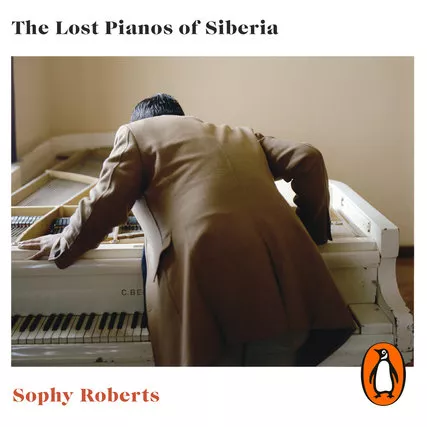Three very different travel journeys
Published on 22nd February 2021

Three wonderful books available on BorrowBox; all enthralling, one will make you laugh, but at the very least, these titles offer a bit of escapism during these strange days.
Access eBooks/eAudiobooks on your phone, tablet or reader. Once you have installed the app, search for Dublin in the ‘Library’ field provided and then sign in using your library membership card number and PIN. Watch our how to video on Borrowbox. Members of other library authorities will need to log in using a different link.
This tells the story of how, ever since entering Russian culture under the influence of Catherine the Great, piano music has run through the country like blood. Ostensibly Sophy was trying to trace pianos still extant from the nineteenth century. Some of these were grand pianos, others were uprights which made their way into more modest homes. In relating this quest, she describes the people and places she visits, and the history of Siberia.
How these pianos travelled into this snow-bound wilderness in the first place is testament to noble acts of fortitude by governors, adventurers and exiles. That stately instruments might still exist in such a hostile landscape is remarkable. That they are still capable of making music in far-flung villages is nothing less than a miracle.
Siberia is over three times the size of the EU but the population is only about 8%. Since the time of the Tzars it has been a place of banishment. Geographically, Siberia is very diverse, and Sophy brings this out by visiting various places, including the Sakhalin Islands. She had hoped to make further journeys, but she ran into trouble with her visa, which prevented this. Sophy is originally from Scotland and has happy memories of childhood holidays in Ireland. So, don’t let the title put you off. This is a really interesting travel book.
This is the true story of a 24-hour period on Everest, when members of three separate expeditions were caught in a storm and faced a battle against hurricane-force winds, exposure, and the effects of altitude, which ended the worst single-season death toll in the peak's history.
Since the 90s expedition companies have been bringing people up to Everest’s summit. The fee is substantial. Everest is 29,035 feet high, subject to storms, avalanches and ice falls and, of course, altitude is a problem. Most use oxygen tanks. Jon Krakauer was the journalist, (from an adventure journal) with this 1996 expedition, led by Rob Hall. He describes how they got to Base camp. There can be hundreds of climbers in May. The last two weeks in May are the best time for reaching the summit. He describes how they went up a camp or two, to acclimatize, and then over five or six days they try for the summit. Some of the group reached the summit. By helping a man, who had a failed attempt with him, the previous year, Rob Hall missed a window of opportunity to get down safely. Eight members lost their lives and some were left stranded. Krakauer details what went wrong, as he sees it. He apportions blame.
This book is a journey he took around the UK The Daily Telegraph describe it as, "the funniest travel book I’ve read all year..."I like the endearing way he describes the people he meets and the places he visits. Places, such as Hove in Sussex, which is the burial place of George Everest, who gave his name to Mount Everest. Some places are tourist spots, like Stonehenge or the Natural History Museum. Bryson rediscovers the wondrously beautiful, magnificently eccentric, endearingly singular country that he both celebrates and, when called for, twits. With his matchless instinct for the funniest and quirkiest and his unerring eye for the idiotic, the bewildering, the appealing, and the ridiculous, he offers acute and perceptive insights into all that is best and worst about Britain today.
Submitted by Liam in Terenure Library.